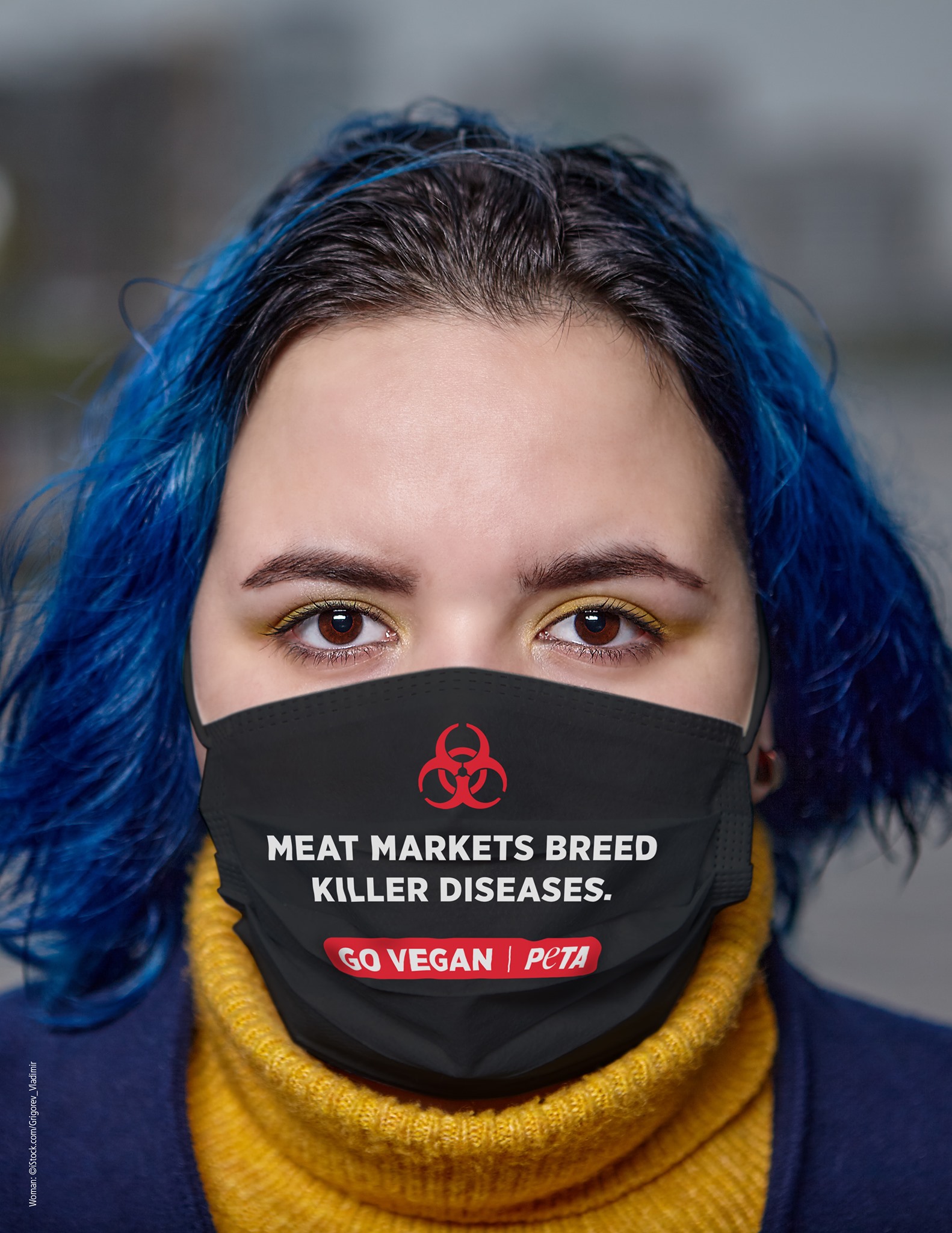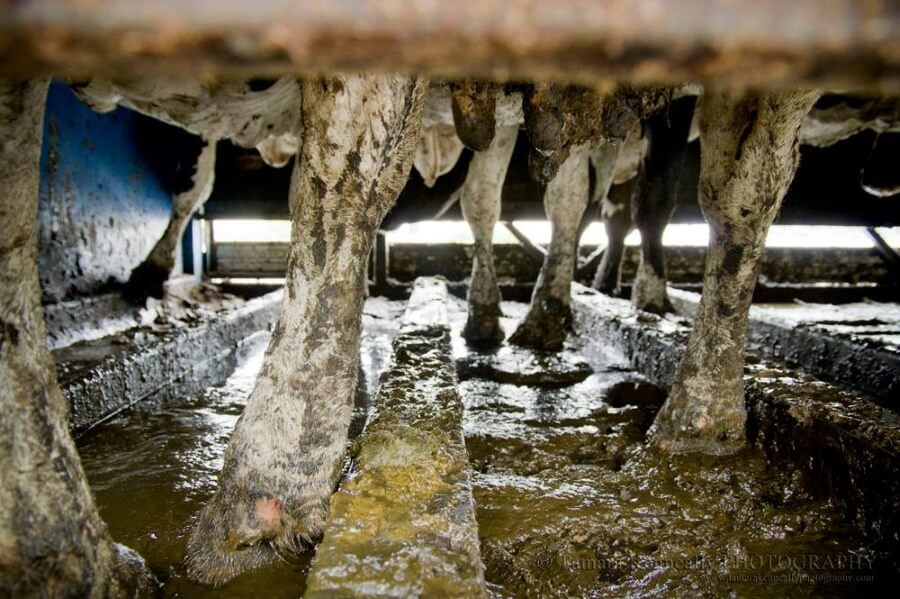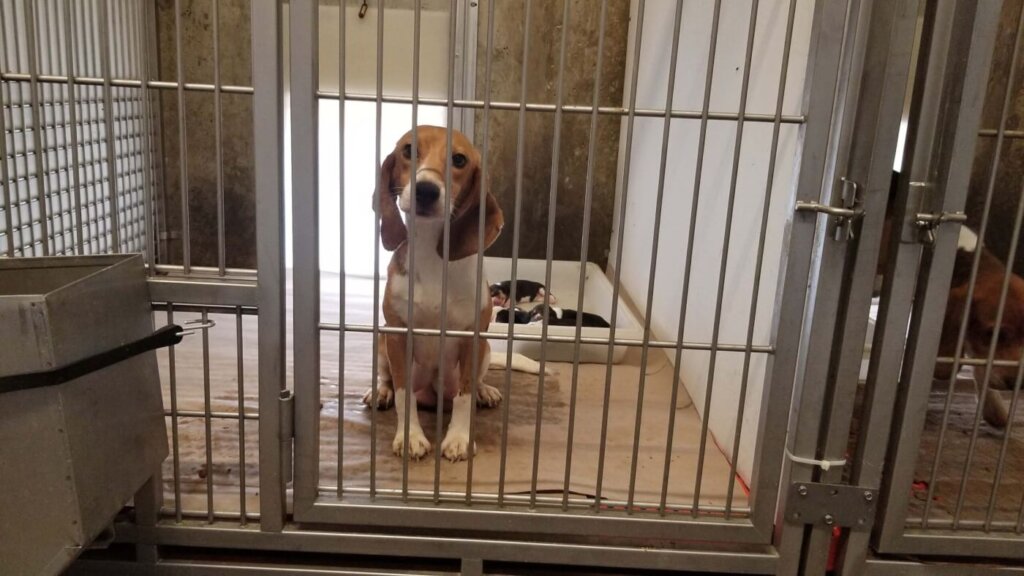
Coronavirus Pandemic Is Linked to Eating Animal Flesh
Public health experts believe COVID-19 (also known as coronavirus, an anagram of “carnivorous”), originated at a Chinese fish market, where close contact between humans and live animals in a small space made it easy for the virus to jump species.
A vaccine is at least a year away, and human-to-human transmission has been confirmed. But the reality is that we probably wouldn’t be in this situation if humans weren’t breeding animals on a massive scale and eating them.
According to the U.S. Centers for Disease Control and Prevention, more than 75% of emerging diseases originate in animals. In this way, the 2019-nCoV is similar to other infamous “coronaviruses,” such as severe acute respiratory syndrome (“SARS”) and Middle East respiratory syndrome (“MERS”). All three have spread from animals to humans.
“When you bring animals together in these unnatural situations, you have the risk of human diseases emerging,” said Kevin Olival, a disease ecologist and conservationist at the EcoHealth Alliance.
Eating animals has huge consequences for human health.
You’ve likely already heard by now that a diet that’s high in animal products can increase a person’s risk of heart disease, type 2 diabetes, and cancer, but there are many more possible health problems associated with our society’s flesh fetish.
For years now, scientists have warned that filthy farms crammed full of sick animals are breeding grounds for new antibiotic-resistant “superbugs”.
Australia imports about 700 tonnes of antibiotics annually, and more than half of them go into stock feed. These are usually the same as, or similar to, the antibiotics that are presently prescribed to fight disease in humans. They serve two purposes: they help prevent animals kept in crowded conditions from dying and they make animals grow faster.
The consumption of animals comes hand in hand with the consumption of antibiotics and, ultimately, bacterial resistance to antibiotics.

Frighteningly, antibiotic-resistant pathogens are already well established in Australian hospitals, and some studies claim that by 2050, more people will be dying from antibiotic-resistant diseases than from cancer if we don’t limit our use of antibiotics.
Scientists have long warned that the use of antibiotics should be banned in animal agriculture, but as long as consumers demand meat, the industry will produce it by the cheapest means possible, with little thought for the long-term consequences.
From deadly viruses to devastating bushfires made worse by climate change – eating animals has apocalyptic consequences.
Humans won’t have a sustainable future if they continue to eat other animals. The easiest thing that you can do to help animals, the environment, and your own health is to go vegan right now.
Animals Are Suffering in Laboratories – Help Save Them Now


